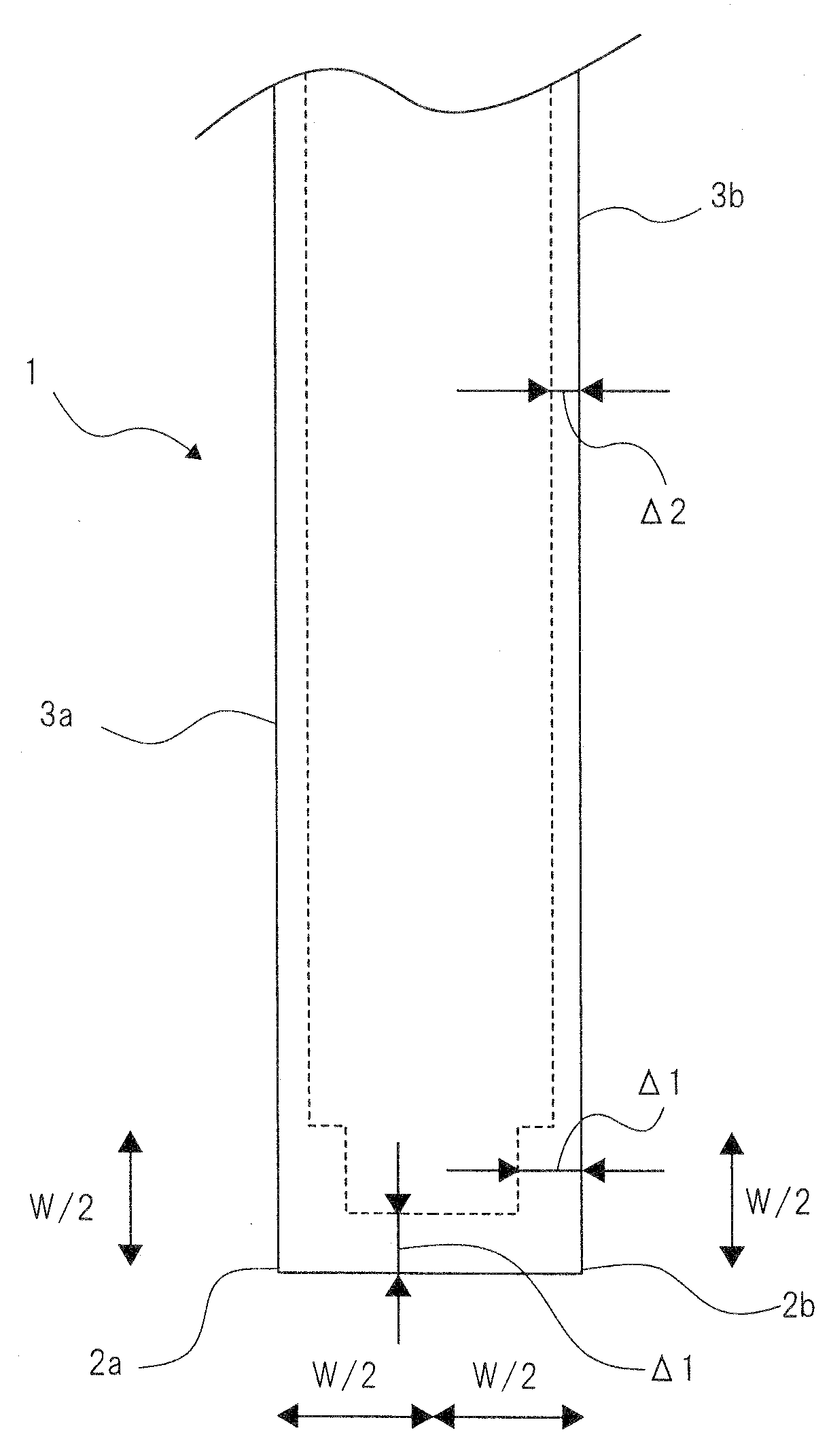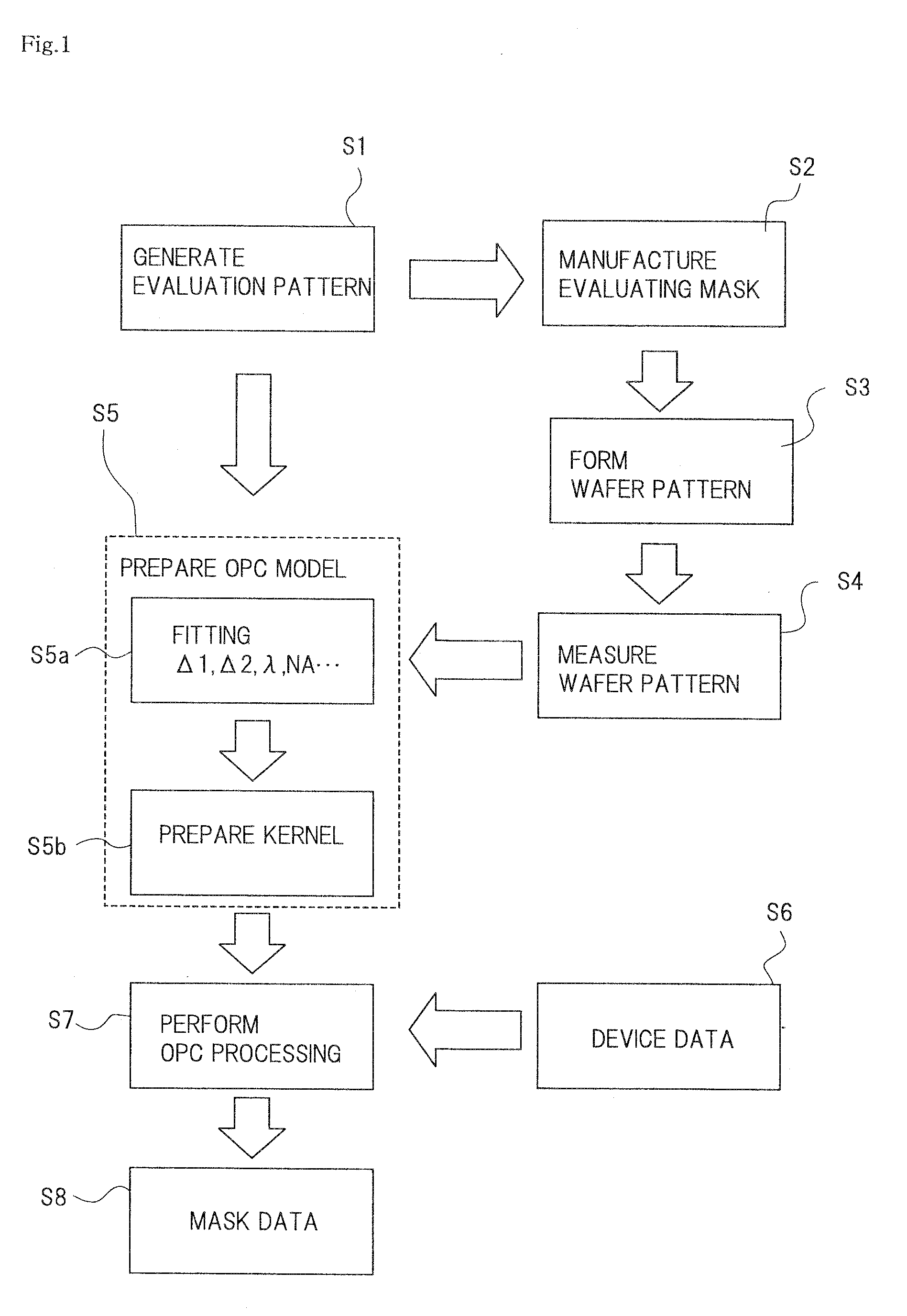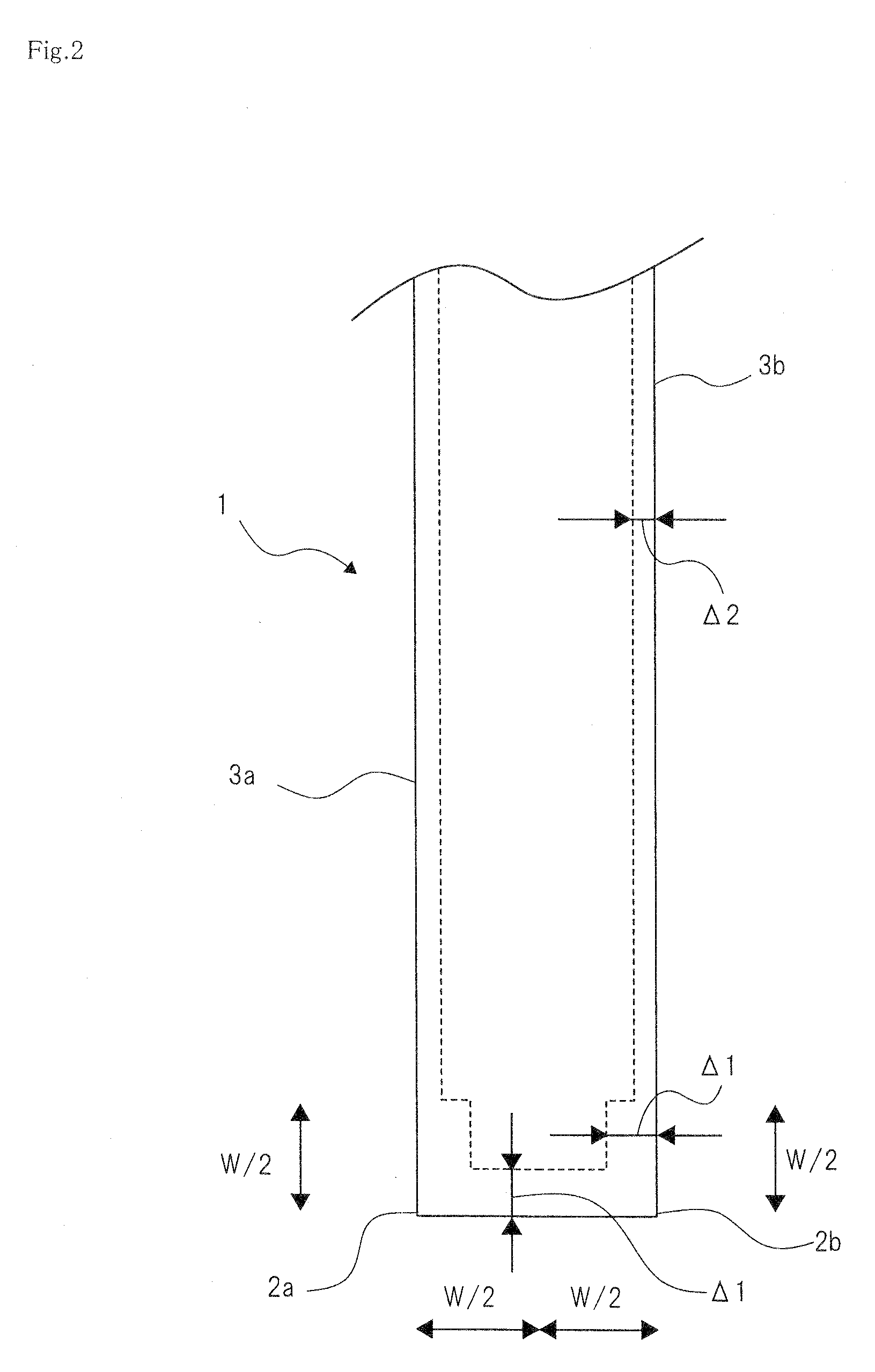Method for correcting mask pattern, and exposure mask
- Summary
- Abstract
- Description
- Claims
- Application Information
AI Technical Summary
Benefits of technology
Problems solved by technology
Method used
Image
Examples
first exemplary embodiment
[0030]FIG. 1 is a flowchart illustrating a method for correcting a mask pattern according to a first exemplary embodiment of the present invention, where there is shown a procedure for obtaining mask data in order to prepare an exposure mask, hereinafter simply called a “mask”. The mask is used in an exposure process, by which a desired device pattern, where a hole pattern and a space pattern are mixed on a wafer (not shown), is formed. An ArF exposure device (exposure wavelength λ=193 nm) which uses the mask has a reduction magnification of 4, and the optical condition is ordinary lighting of NA=0.92 and coherent factor σ=0.5.
[0031]The mask is a halftone phase shifting mask. This mask is formed by a transparent substrate using synthetic quartz (SiO2), and a translucent film (film thickness=71.85 nm, permeability=5%) using molybdenum silicide oxide and nitride (MoSiON) and the like. The refractive index (n, k) of the transparent substrate is (1.474, 0) at the exposure wavelength of ...
second exemplary embodiment
[0046]FIG. 3 is a flowchart illustrating a method for correcting a mask pattern according to a second exemplary embodiment of the present invention. For portions of descriptions that overlap with those of the method for correcting a mask pattern illustrated in FIG. 1, those descriptions will not be repeated below as needed. The method for correcting a mask pattern according to this exemplary embodiment is mainly different from that illustrated in FIG. 1, wherein a rule based OPC as well as a model based OPC is applied. For example, as a rule for correcting a side, a bias value Δ2 is calculated by means of simulation (refer to FIG. 4). Then, as a rule for correcting a corner, a bias value Δ1 is calculated by an experiment (refer to FIG. 5). Then, using these bias values Δ1, Δ2, the rule based OPC is performed.
[0047]First, in the method for correcting a mask pattern, a bias value Δ2 of a side of a rule used for the rule based OPC is previously calculated by means of simulation. FIG. 4...
PUM
 Login to View More
Login to View More Abstract
Description
Claims
Application Information
 Login to View More
Login to View More - R&D
- Intellectual Property
- Life Sciences
- Materials
- Tech Scout
- Unparalleled Data Quality
- Higher Quality Content
- 60% Fewer Hallucinations
Browse by: Latest US Patents, China's latest patents, Technical Efficacy Thesaurus, Application Domain, Technology Topic, Popular Technical Reports.
© 2025 PatSnap. All rights reserved.Legal|Privacy policy|Modern Slavery Act Transparency Statement|Sitemap|About US| Contact US: help@patsnap.com



